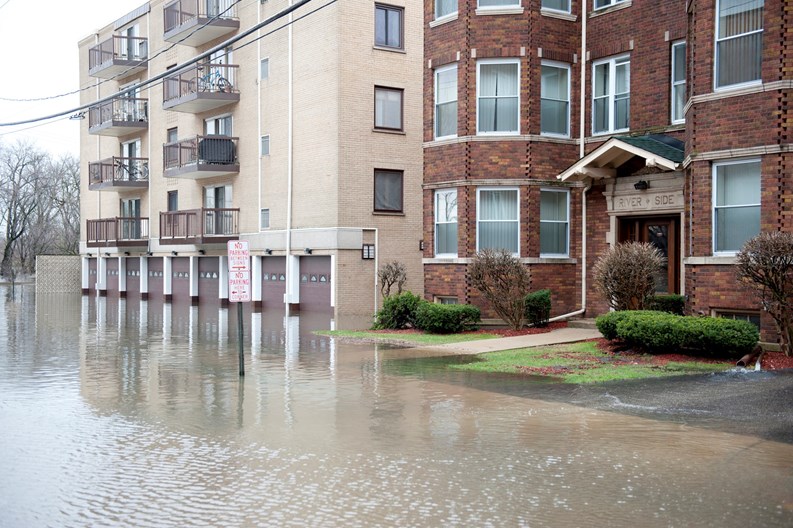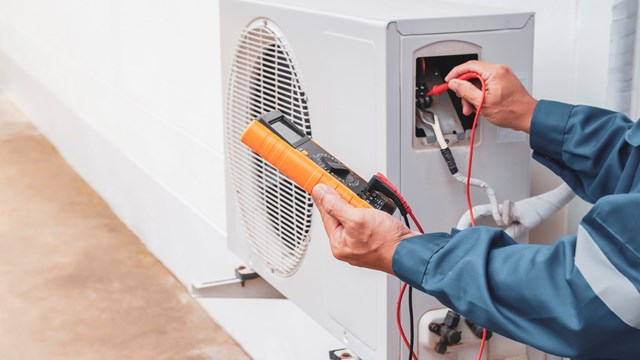The recent flash flooding resulting from Hurricane Ida and other torrential summer storms around the nation has come as something of a wake-up call for homeowners and local governments alike. The real-world effects of climate change are upon us - even in areas where such events were rare before, if they occurred at all. .
The potential for flash flooding in urban environments has raised a particular concern for co-op and condominium owners, and communities where there are units at or below grade. Such units may be more common than you think; smaller associations and corporations that occupy brownstone or other low-rise type buildings often have ground floor or semi-subterranean garden units. They’re also common in neighborhoods - such as Washington Heights in upper Manhattan, for example - where the topography often means ground floor units that are partially subterranean.
Surprise
“There are certain neighborhoods and types of buildings that have more subterranean or partially subterranean units than others,” says Nicole Beauchamp, an agent with Engel & Volkers, a real estate brokerage company located in New York City. “Often these units are in buildings and neighborhoods that wouldn’t necessarily come to mind, including Washington Heights and Beekman Place. Lobby-level apartments are frequently under sidewalk level.”
A generation ago, that would be a non-issue, Beauchamp continues. “When [these buildings were] originally constructed or converted to co-op or condo ownership, there wasn’t extreme weather or major flooding to worry about, so little thought was given to this problem. We have never seen before what we have seen over the last couple of years. We didn’t know we needed to be prepared to make accommodations for this; there were lots of discussions, but nothing was implemented, because it didn’t feel urgent.”
Beauchamp goes on to say that “For a co-op or condo, this problem is similar to capital improvement projects. We can’t put off addressing them the way we did in the past. From the perspective of a co-op or condo, the question is, ‘What can we do to prevent a disaster? Who do we bring in to do the work, and how do we pay for it?’ A likely concern for boards is the possibility of a maintenance increase or special assessment resulting from a flooding incident, so they should consider a financial plan to address the problem.”
Mitigation Options
Phillip Mahan is president of Structural Technologies, Inc., an engineering firm based in Bloomingdale, Illinois. He recommends the following actions to protect ground level and semi-subterranean units from flooding dangers:
“First, flooding starts on the outside - so if there is an outside drain system on the property, make sure it isn’t clogged with leaves and is functioning properly and optimally. With good drainage we can manage most stormwater. Second, check the actual grade level surrounding the structure. Make sure it’s sloped away from the building to divert the water. Typically, it’s simple to check. Use a level to see the grade. In garden apartment basement structures, water often comes in through a window or window well. Check the window wells, too. We have to make sure window wells are drained from the bottom and that water is diverted away from the window well and doesn’t fill it.”
Mahan advises that there are also censor systems that can detect water buildup and flooding. They are used in sump pump systems and set off an alarm to warn of water in the area. “The reality of torrential storm events in Chicago has been most prominent in garden level units, where streets flooded and water rose up and overflowed entire foundations. If the water table is above the floor line,” he says, “just get out. Another issue, explains Mahan, is that we don’t have absorptive materials around most buildings. Instead, “We have concrete. Water will rise until it finds relief.”
The pros agree that the clock has run out; we need to pivot from the notion of stopping climate change to mitigating - and possibly slowing - the effects already being felt by so many. “Now it’s urgent,” says Beauchamp. “What we should have learned is that the effects of climate change are coming sooner rather than later. This previously unknown flooding [in New York] occurred twice in just two weeks. People lost everything. We need to address the problem.”










Leave a Comment